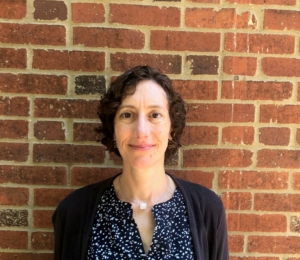
Elizabeth Arkush
I was lucky enough to be a doctoral student in the Anthropology Department at UCLA. While the program gave me an excellent and coherent foundation in anthropological archaeology, the range of outstanding faculty from Anthropology as well as from other departments with Cotsen Institute of Archaeology affiliations meant we students were exposed to inquiry across a wide variety of regions, themes, and methodological specialties. These faculty, my fellow graduate students, and the cheerful volunteers from the Friends of Archaeology formed a critical mass of smart, curious, delightful people. I learned so much from them during my grad school years, both in and out of the classroom. With a constant buzz of classes, Pizza talks, Department of Anthropology colloquia, and general goings-on, it was a wonderfully supportive and stimulating environment and a great foundation for a career of research and teaching in archaeology.
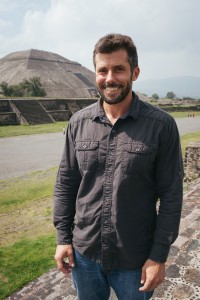
David M. Carballo
I had a tremendous graduate experience at UCLA, for which I am very grateful. The four-field focus of the Department of Anthropology has allowed me to frame research broadly, particularly with reference to anthropological concerns. The strong foundation provided by the UCLA-Anthropology program, especially the range of cross-cultural and temporal similarities and differences that we were exposed to, served as the backdrop in my own investigations and the training of students. In addition, the strong relationship between the anthropological archaeology program of the Department of Anthropology and the Cotsen Institute of Archaeology makes it a model for successful archaeology programs.
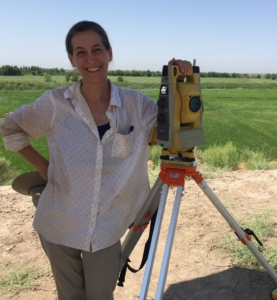
Elizabeth Baker Brite
The UCLA Anthropological Archaeology Graduate Program prepared me to pursue a career guided by an interdisciplinary framework. I work with students and faculty in fields very different from my own, including engineering, science, and the liberal arts, while communicating the value of anthropology very broadly. The UCLA program has been vital in providing me this breadth. At UCLA, I was continually engaged in four-field education and dialogue, so that I am now able to speak knowledgably not only about ancient history or the science of archaeology, but also about anthropological theory, the ethnographic method, and the general importance of our field to scholarly inquiry.
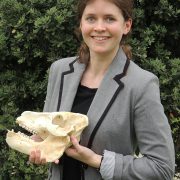
Katherine Brunson
I have many fond memories of my time as a graduate student in the Anthropology Department at UCLA, from hiking around Qinghai Lake as part of the Tibet Paleolithic Project with Jeffrey Brantingham, to de-fleshing alpacas, iguanas, and armadillos to add to Tom Wake’s zooarchaeological comparative collections. I am continually grateful for the support and mentorship provided by the Anthropology Department’s faculty and staff, particularly the wonderful archaeologists in the department who advised my dissertation and whose courses taught me new methods and approaches for thinking about the archaeological record. The Anthropology program’s strengths in East Asian archaeology, zooarchaeology, and cross-cultural comparative approaches provided me with a strong methodological and theoretical foundation that has helped me in all of my subsequent fieldwork and research in China. The Department’s close ties to the Cotsen Institute of Archaeology also allowed me to take advantage of additional laboratory resources and to build collaborations and friendships with archaeologists in other departments.
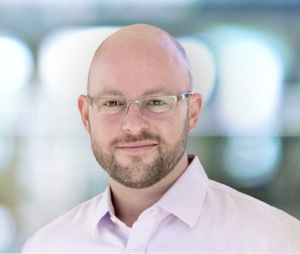
John Dietler
My graduate career at UCLA provided me with a solid foundation in archaeological method and theory and a diverse set of research opportunities. I studied the intersections of craft production and the origins of political complexity in Santa Cruz Island, California for my MA thesis, using that as a springboard for an independent PhD study focused on similar phenomena in southwest Florida. Laboratory work with Professor Richard Lesure led to an opportunity to publish on Early Formative period subsistence practices in Soconusco, Mexico. Building on these varied experiences, I have built a successful career in applied archaeology that has included a wonderful array of research projects including studies of historic period cemeteries in urban Los Angeles and Late Holocene exchange networks in the Mojave Desert. I am currently leading a decade-long research project at Mission San Gabriel focused on Native American community formation, along with technological innovation at the dawn of the Industrial Revolution. Today I am the California and Pacific Islands cultural resources director and a principal investigator for SWCA Environmental Consultants, one of the nation’s leading cultural resources management firms.
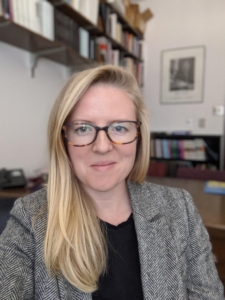
Katelyn J. Bishop
My time at UCLA in the Anthropology department was formative, stimulating, and highly enjoyable. As a doctoral candidate focusing on archaeology, I benefited immensely from interaction and support both within my home department of Anthropology and from the Cotsen Institute of Archaeology. The commitment in the Anthropology department to educating its students in all four fields of Anthropology left me with a strong understanding and appreciation of anthropological theory, helped me to develop wonderful relationships with other students and faculty in other sub-fields, and has continued to influence my own research and approach to teaching. The diverse interests and specialties of the Anthropology faculty allowed me to pursue my own research interests regarding the human-animal relationship across multiple different regions, and to work on other projects that helped shape my doctoral work, provided professional opportunities, and strengthened my publication record. I also received great mentorship on how to be an excellent teacher. Additionally, the presence of the Cotsen Institute of Archaeology and its relationship with the Anthropology department provided me access to laboratory spaces for my work, new and exciting classes, and additional financial support for my research. At UCLA I benefited from dedicated and supportive guidance from members of my doctoral committee and many others, was exposed to many geographical regions, theoretical perspectives, and methodologies outside my own specialties, and formed lasting relationships with many wonderful people who continue to be valued friends and colleagues to this day.

